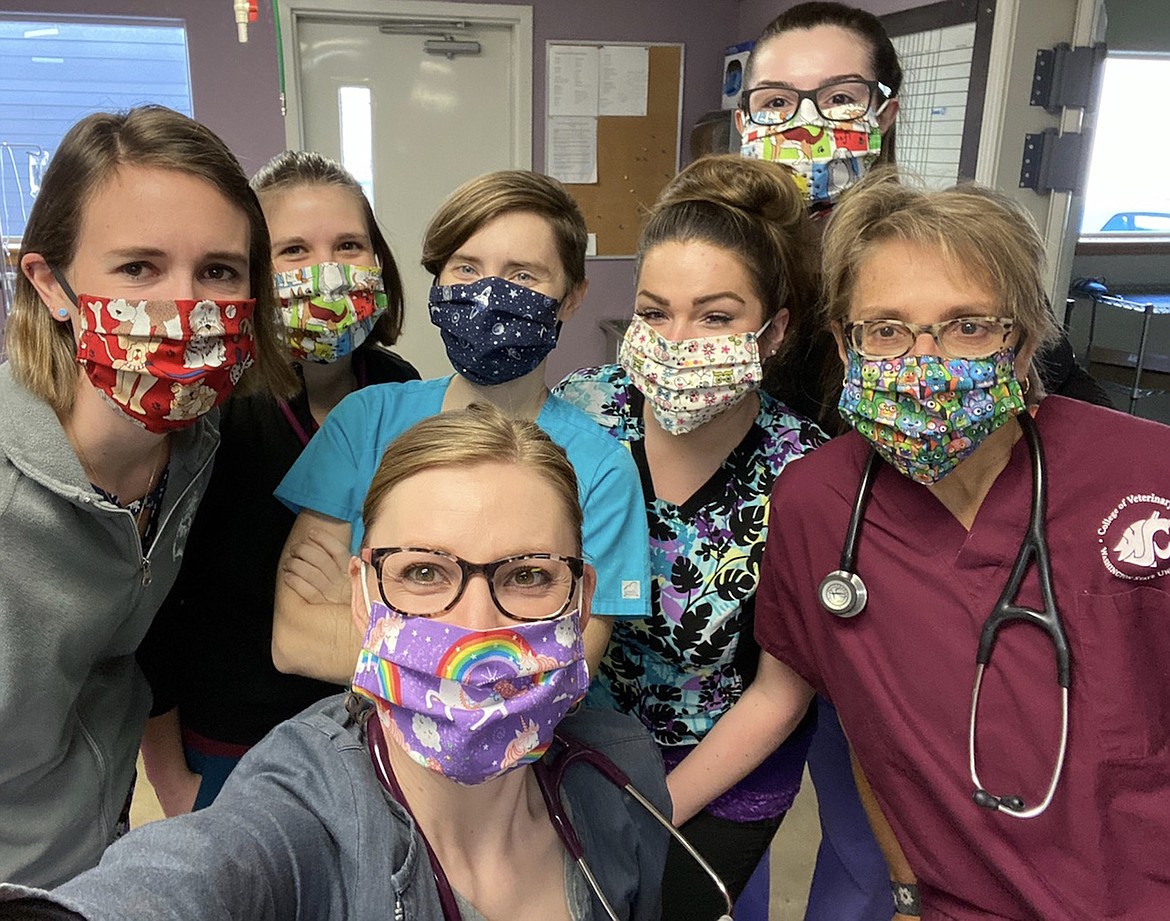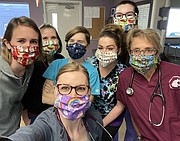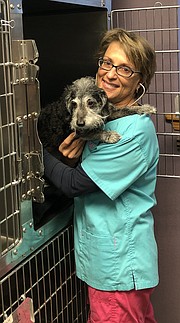Local vets: Pets probably not at risk for COVID-19
ALY DE ANGELUS | Hagadone News Network | UPDATED 5 years, 10 months AGO
Confirmation of COVID-19 cases in non-human patients such as tigers, lions, dogs and cats has naturally begged the question from pet owners all over the world – Is my pet at risk? The short answer is probably not.
However, scientific information about the pandemic’s origin and the nature of this disease is changing daily.
“I would say be careful, what you read today may not be true tomorrow,” Dr. Dawn Mehra, a veterinarian at North Animal Hospital, said. “There are multiple studies going on right now, like fast and furious, and the latest is that there is no evidence the COVID-19 infection can be transferred from pets to humans.”
The majority of pet clinics are primarily operating on a telehealth plan, unless the animal is sick. Pet owners are instructed to stay in their cars for in-person appointments while staff members race to the parking lot in protective gear and retrieve the animal for evaluation. The pet owner is then called on the phone to discuss the treatment plan.
“It’s a little tricky with maneuvering and getting through our procedure in the same amount of time,” Mehra said. “As humans a lot of our communication is what we see and body language, so when you take that away and you are only on the phone, the communication network potentially breaks down.”
With limited access for testing humans, veterinarians are weary of seeing diagnostic tools for pets any time soon.
“There is limited access for people right even in Bonner County,” Veterinarian Marvalee McConnell Higgins said from Fry Creek Veterinarian Clinic. “If they (pet owners) come back positive for the (novel) coronavirus, I might be able to get to the state lab and say I would like to test the animals in the household. That would probably be OK, but it depends on how many tests they have for people because people are more important than animals for testing.”
IDEXX is a veterinarian diagnostic company that has evaluated thousands of feline and canine specimens while validating their new veterinary test system for the COVID-19 virus. The company has not yet released their test to the public.
“Should leading health authorities determine it is clinically relevant to test pets for the COVID-19 virus, IDEXX will be ready to make the IDEXX SARS-CoV-2 (COVID-19) RealPCR Test available,” said Jay Mazelsky, President and Chief Executive Officer of IDEXX Laboratories on the IDEXX website. “Pets are important members of our family, and we want to keep them healthy and safe. We will continue to monitor COVID-19 and pet health across our global IDEXX Reference Laboratories network as this situation evolves.”
Neither Higgins or Mehra have seen a spike in respiratory-related symptoms for pets, but they are experiencing long hours and an increase in patient visits. One possibility is that pet owners are spending more time at home due to business shutdowns.
“I think people are being a little more empathetic, a little more observant because people are home right now,” Mehra said. “We see these animals sometimes don’t get as much care because people are so busy. They are working and not always present, so now that they are home more, they are really watching and they are caring.”
Another reason suggested was the stress in the environment. “It could be affecting everyone including our little animals at home,” she said.
The first report of a pet contracting the COVID-19 infection was on Feb. 28 and researchers speculate the dog contracted the infection from the female 60-year-old owner who also tested positive for COVID-19. Though the 17-year-old Pomeranian died on March 16, the exact cause of death remains a mystery. This is the only non-human death with confirmation of COVID-19 and an autopsy was not performed.
Current studies suggest this virus lives longer on smooth surfaces. One study from Worms and Germs blog, a website suggested by Mehra for up-to-date and credible information on zoological studies, found evidence of SARS-CoV-2 in cats and ferrets. Cats and ferrets are the most susceptible to the virus and they can pass the virus to other cats or ferrets.
“Until we can do antibody tests on pets, we won’t know whether they’ve had active infections or not,” Higgins said. “If I had a coronavirus and my animal had been licking my face, their oral swabs and their nasal swabs might come up positive for the coronavirus even if they didn’t have an active infection.”
Along with telehealth consults, Higgins and Mehra encouraged pet owners to wear protective wear at home, minimize travel, wash hands and limit petting and kissing their pet or other pets, especially around the face.
And both specialists encourage the pet owners to stay calm and enjoy the extra time at home with their furry friends.
“We’ve had several clients who have mentioned they found the COVID-19 article for coronavirus in the big cat in the zoo and they had it in dogs in Hong Kong,” Higgins said.
“I would like people to feel more at ease if they hear that animals have tested positive for coronavirus, to let them know that their pet will only get it from them.”
“Our biggest risk is between each other,” Mehra said. “Not from the pets or the pet parents or anything, it’s from each other. We all have homes and we work twelve hours a day around each other … and if our staff becomes infected then we wouldn’t be able to be open. If one of the veterinary hospitals closes here, it’s going to be really hard for everyone.”
Two other recent zoonotic outbreaks, infections transmitted from non-human to human, have been recorded. These two outbreaks were Severe Acute Respiratory Syndrome through the masked palm civet and Middle East Respiratory Syndrome through dromedary camels.
Aly De Angelus can be reached by email at [email protected] and follow her on Twitter @AlyDailyBee.
ARTICLES BY ALY DE ANGELUS

Hero of Art: Local rescues iconic downtown mural
More than a third of Dianna Schuppel and Eric Odin’s 1998 hand-painted mural had crumbled into bits and pieces of paint and cement by the time Douglas Jones was recruited.

Sandpoint High ready for reentry
SANDPOINT — A back-to-school guide for students and staff attending Sandpoint High School this fall was released Friday, which indicated changes related to the COVID-19 pandemic.
Ordinance would mandate masks in Sandpoint
SANDPOINT — The chambers are quiet, but controversy on mandating masks in the city has reached an all-time high.





